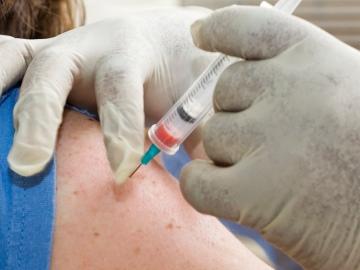
Section Branding
Header Content
Community Groups Prepare For Exchanges
Primary Content

We're less than a week away from the start of enrollment under the Affordable Care Act.
Georgia community health providers are still unsure how they'll be implementing the national program.
That's leading to a lot of confusion for residents now required to sign up for coverage.
Fifty-seven year-old Lola Kerce is exactly the kind of person the Affordable Care Act was designed to help.
The Bloomingdale resident worked for decades before running into health problems and losing her jobs in retail sales and home health care.
"They had a plan but it would have been half my paycheck," Kerce says. "So, I didn't have anybody. I had to support myself. I had to pay rent. I had to live somewhere."
She's now unemployed, uninsured and opposed to the new health care law.
"I don't think its going to work," Kerce says. "If you have to buy it and you can't afford to buy it, then how are you going to buy it?"
Kerce didn't know about the subsidies available for those who can't afford the coverage until I told her about them.
She says no one emphasizes that part of the law.
"Well, nobody said anything about it," Kerce says. "I mean, I was under the impression it was still up in the air because no one said it's going to be provided for you."
Concerns like Kerce's only begin to describe the challenges involved in getting millions of uninsured to sign up for coverage starting next week.
Much of the work in Georgia will be done by about a hundred so-called "health navigators."
Many of them are just finishing training.
"We're going to go with our outreach coordinator," says Curtis Cooper Health Clinic Director Al Grandy. "I know she's studying for it.
A few days ago, Grandy and I interrupted Sandra Toomer in her office at the clinic in Savannah.
"The door is locked," Grandy says as he knocks on Toomer's door.
Toomer was studying to take a test later that evening to become a navigator.
Her desk had huge notebooks with sticky notes and lines highlighted in yellow.
"I like quiet so I can concentrate," Toomer says. "If I focus on this material, I'll be better able to serve the customer coming though the door."
Toomer and five-other navigators will fan out across the Savannah area.
They'll help enroll thousands of uninsured by March.
Of course, many people will seek enrollment help online, by phone or with private agents.
But Grandy says the number navigators versus the number of uninsured in Chatham County will be a challenge.
"Currently there are approximately 80,000 individuals uninsured in Chatham County," Grandy says.
There'll be about six navigators for all of those.
Is that enough?
"I don't think it's enough to reach all of the areas in Chatham County," Grandy says.
Statewide, there'll be about 100 navigators for about 2,000,000 uninsured residents.
The state would have more navigators.
But Georgia is one of 26 states that chose not to set up its own health exchange, citing its cost.
Dale Carlson-Bebout of the Chatham County Safety Net Planning Council says that leaves local non-profits and health care providers largely on their own to coordinate implementation.
"I think well get the basics next week," Bebout says. "But I think the targets and the messaging that needs to happen over and over again for people to really think about how it applies to them is going to take some time."
The Council consists of hospitals, low-cost clinics, United Way and other groups in the Savannah area.
It's the unifying contact for the law's implementation locally.
Miriam Rittmeyer of Savannah's free Community Health Mission says it's hard for providers like hers to answer questions about the law when they don't have much information themselves.
"We are coming to October first and there is a lot of stages that haven't been planned and it's because everything has happened so fast," Rittmeyer says.
Around the state, a coalition led by the Atlanta-based Georgians for a Healthy Future and the University of Georgia is coordinating where navigators will go.
Next week in Savannah, a group of private health agents will try to access the exchange at their annual conference.
What will happen when the federally-run exchange goes live Tuesday?
You'll have to tune in to find out.
I and the rest of the GPB News staff will have continuing coverage of the law's implementation.
Tags: University of Georgia, GPBnews, federal health care, orlando montoya, Georgians for a Healthy Future, Affordable Care Act, health care exchange, obamacare, health navigators, Chatham County Safety Net Council, Dale Carlson-Bebout, Community Health Mission, Curtis Cooper Health Clinic, Albert Grandy, Miriam Rittmeyer, Lola Kerce, Sandra Toomer
Bottom Content

